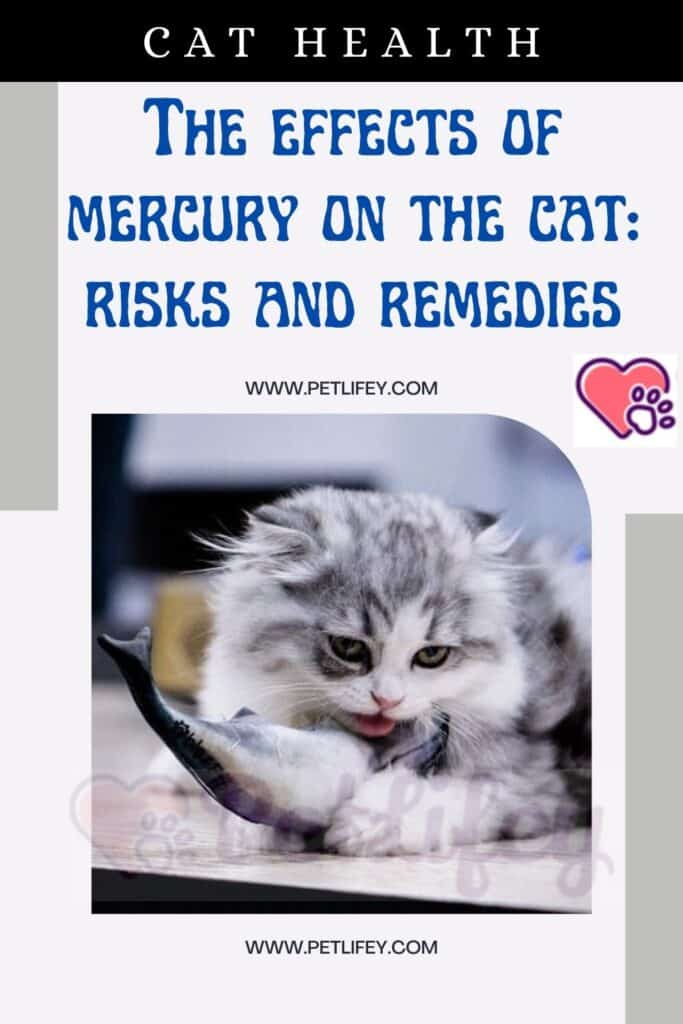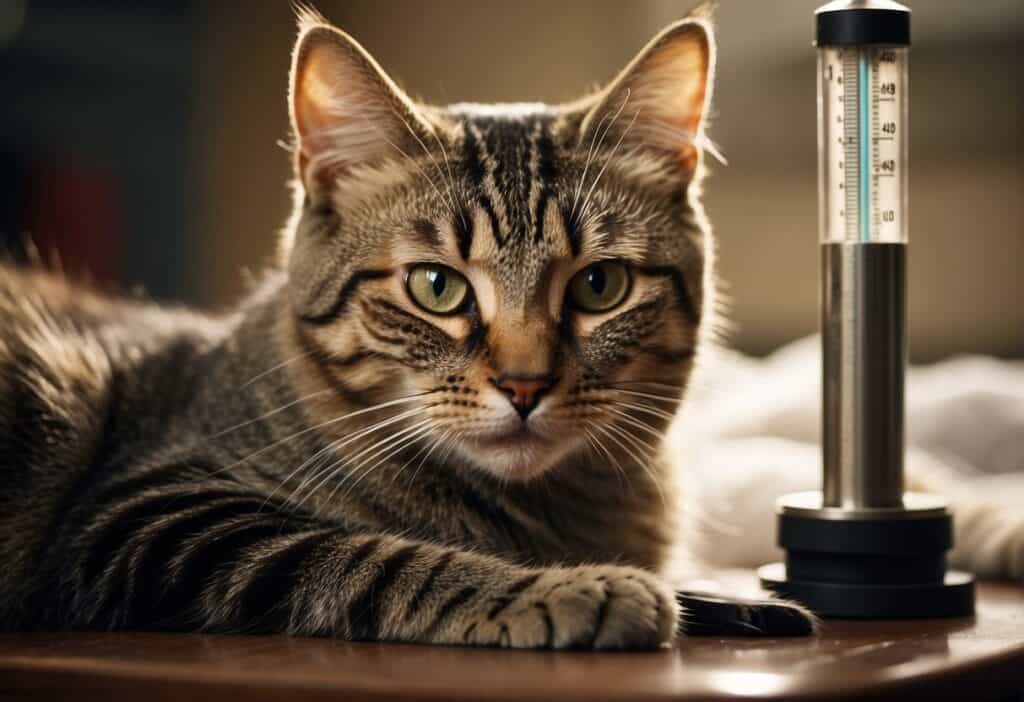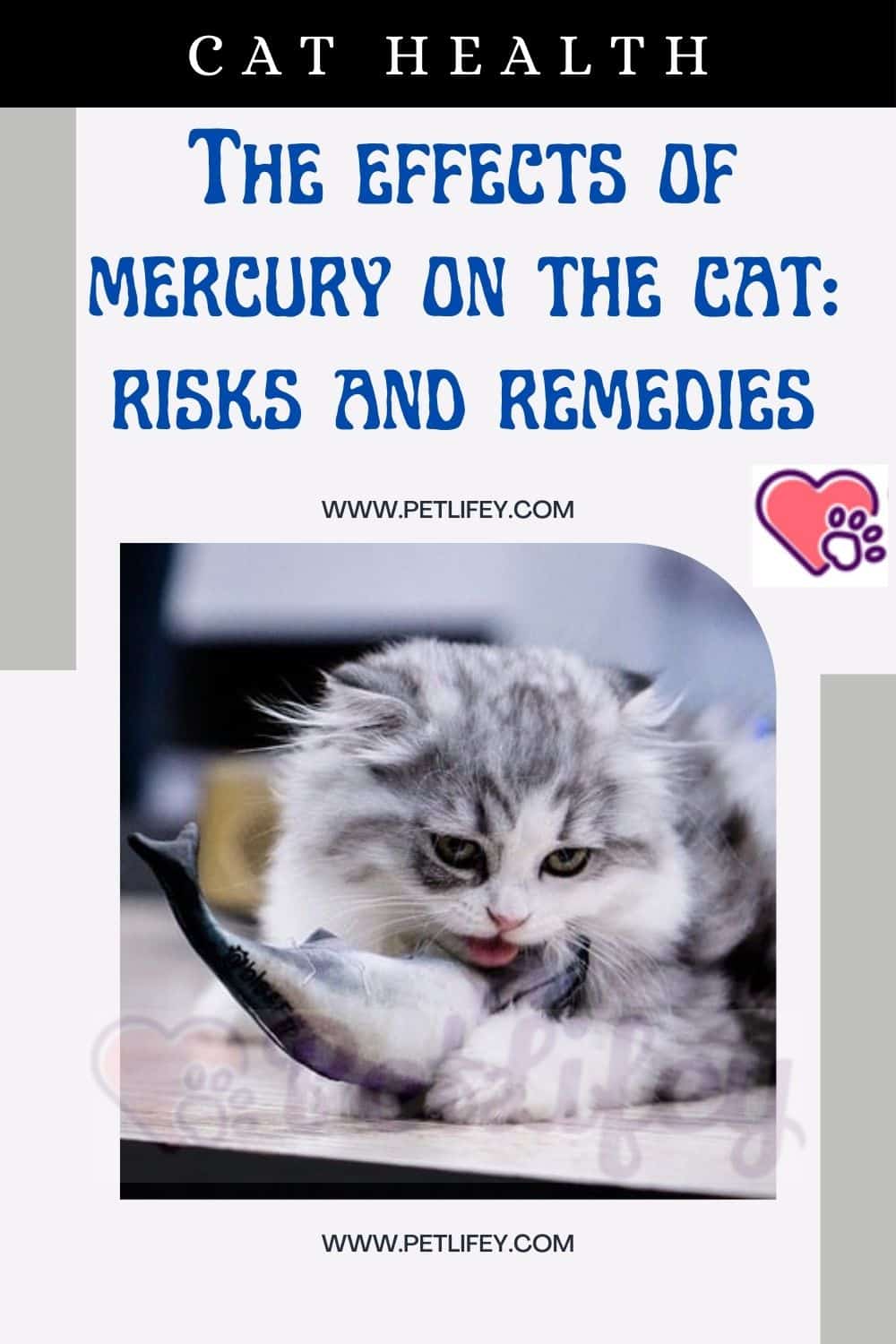The Effects of Mercury on the Cat: Understanding the Risks and Identifying Remedies

Mercury is a potent neurotoxin that poses significant health risks to all living organisms, including your domestic cat. Exposure to mercury can occur through various means, such as the ingestion of contaminated food or proximity to industrial emissions. In cats, the effects of mercury can be subtle but progressive, potentially leading to serious neurological and renal problems. Understanding the risks associated with mercury exposure is crucial for ensuring the well-being of your pet.

As an element found naturally in the environment, mercury can be released into the air through industrial processes. For instance, mercury cell chlor-alkali plants are known sources of mercury emissions. These emissions can settle into water bodies and transform into methylmercury, a compound that accumulates in aquatic organisms and can climb the food chain, ultimately reaching the food that you may provide to your cat. Therefore, being aware of the sources of mercury and its presence in the environment is essential for minimizing the risks to your feline companion.
In the event that your cat is exposed to mercury, there are remedies and preventive measures that you can take. It’s important to recognize the signs of mercury poisoning, such as changes in behavior or coordination, which warrant immediate attention from a veterinarian. Safeguarding your cat from mercury involves informed choices about diet and awareness of potential environmental hazards. While the risk of mercury exposure to your cat may seem daunting, with the right knowledge and actions, you can protect your pet from this toxic threat.
Overview of Mercury Exposure in Cats

When considering your cat’s health, understanding the risks of mercury exposure is crucial. This toxic metal can lead to severe health problems, but with the right knowledge, exposure can be managed effectively.
Sources of Mercury Contamination
Mercury enters your cat’s environment in various ways, posing health risks. The primary source is through their diet, primarily if their meals include significant amounts of fish known to contain mercury, such as tuna and mackerel. Other potential sources include exposure to broken thermometers or fluorescent light bulbs, which may contain elemental mercury.
- Dietary Sources:
- Tuna
- Mackerel
- Household items:
- Thermometers
- Light bulbs
Mercury Types and Their Properties
Mercury exposure affects cats differently, depending on the type they come into contact with. Methylmercury, the organic form of mercury found in fish, accumulates in tissues and has significant neurotoxic effects. Elemental mercury, which might be found in household items, primarily causes gastrointestinal distress when ingested.
- Methylmercury:
- Found in fish
- Neurotoxic
- Elemental Mercury:
- Found in some household items
- Causes gastrointestinal symptoms
In cases of mercury poisoning, veterinarians might use benzodiazepines to manage severe symptoms like seizures or tremors. However, only use medication under professional guidance to ensure your cat’s safety.
Health Risks of Mercury in Cats
When considering the safety of your cat, be aware that exposure to mercury can lead to significant health issues. These can range from neurological problems to reproductive harm, and understanding these risks is crucial for their wellbeing.
Neurological Effects
Mercury toxicity in cats primarily targets the nervous system. Symptoms can include:
- Loss of coordination
- Behavioral changes, such as heightened aggression
- Tremors or involuntary muscle movements
Long-term exposure can potentially lead to serious and irreversible damage to the brain.
Renal Impairment
The kidneys are responsible for filtering waste, and when affected by mercury, their function can be compromised. You may observe:
- Increased thirst and urination
- Lethargy
- Weight loss
Consistent exposure to mercury can escalate to chronic renal failure, which is particularly concerning for cats as it significantly impacts their quality of life.
Gastrointestinal Issues
Mercury can irritate a cat’s digestive system, leading to symptoms such as:
- Vomiting
- Diarrhea
- Loss of appetite
These symptoms can result in dehydration and malnutrition if not addressed promptly.
Reproductive Harm
Reproductive issues due to mercury can be observed in both male and female cats but are a particular concern for pregnant queens, as mercury can affect their litter. During lactation, the transmitted mercury can pose risks to the nursing kittens. This may result in:
- Birth defects
- Developmental delays
- Reduced survival rates of the kittens
It’s imperative to limit your cat’s exposure to mercury, especially if breeding is planned or if your cat is currently nursing.
Clinical Symptoms of Mercury Poisoning
When your cat is exposed to mercury, it can lead to a range of behavioral and physical health issues.
Behavioral Changes
Your cat’s behavior may alter due to mercury poisoning. You might observe:
- Altered mental state: Confusion or disorientation.
- Unusual behavior: Increased aggression or sudden timidity.
Physical Symptoms
The physical manifestations of mercury poisoning in cats can be severe and include:
- Neurological issues: Your cat may exhibit a drunken or wobbly gait, known as ataxia, along with tremors or seizures.
- Gastrointestinal distress: Symptoms such as vomiting or diarrhea may occur due to the corrosive nature of inorganic mercury.
- Renal complications: Increased thirst and urination progressing to a complete lack of urine may indicate kidney damage.
- Motor function: Symptoms like hindleg rigidity and a lack of coordination could develop.
If you suspect mercury poisoning, veterinary attention is critical. In some cases, benzodiazepines may be administered by a veterinarian to help manage seizures associated with toxicity.
Diagnostic Procedures
To determine if your cat has been affected by mercury, specific diagnostic procedures must be carried out.
Blood and Urine Tests
Blood and urine analyses are fundamental in detecting mercury levels in your cat’s system. These tests can reveal:
- Blood: Elevated mercury concentrations.
- Urine: Indicators of kidney function, which mercury can impair.
Tissue Biopsy
For a more definitive assessment, tissue samples from your cat’s liver or kidney may be examined under microscopic evaluation. This allows for:
- Detection of Mercury Deposits: Microscopic examination can reveal the presence of mercury within the cells.
- Evaluation of Organ Damage: The extent of any damage caused by mercury accumulation can also be assessed.
Treatment Options for Mercury Poisoning
When your cat suffers from mercury poisoning, treatment should be prompt to mitigate serious health consequences. You have several options to address this condition under veterinary guidance.
Chelation Therapy
Chelation therapy involves administering a chelating agent that binds with mercury, making it less toxic and helping the body to remove it more effectively. This can be particularly effective if started quickly after mercury exposure.
Supportive Care
Supportive care is crucial, as it enhances your cat’s ability to recover while its body clears the toxin. This includes:
- Monitoring kidney function and hydration levels
- Providing medications like benzodiazepines if needed for seizures or tremors
- Ensuring a calm and comfortable environment for recovery
Dietary Management
Dietary management is preventive and remedial. After exposure:
- Switch to a diet low in mercury
- Avoid fish known to have higher mercury levels
- Introduce foods rich in antioxidants, such as Vitamin E and selenium, to help mitigate oxidative damage caused by mercury.
Preventive Measures
Preventive measures are crucial to protect your cat from the harmful effects of mercury exposure. Implementing safe feeding practices and managing the environment effectively will reduce risks significantly.
Safe Feeding Practices
- Choose Cat Food Wisely: Ensure the cat food you buy is from a reputable manufacturer that adheres to strict quality control measures to prevent mercury contamination. Avoid or limit the amount of fish-based foods, particularly those known to contain higher mercury levels, like tuna and swordfish.
- Read Labels Carefully: Look for certifications and product testing that ensure low mercury levels.
Environmental Management
- Household Safety: Keep all mercury-containing items, such as certain thermometers, fluorescent bulbs, and batteries, out of your cat’s reach. Secure these items to prevent breakage and potential mercury release.
- Professional Assessment: If you suspect mercury is present in your home, have a professional conduct an environmental assessment. They’ll identify potential sources of mercury and provide guidance for remediation.
Public Health Implications
Mercury exposure through cats affects more than just the animal’s health; it has implications for human health and necessitates careful regulatory oversight.
Impact on Human Health
When your cat is exposed to mercury, it’s crucial to understand that this can pose a risk to your own health. Mercury can be transferred from pets to humans through close contact, and if a cat is lactating, the toxin can be present in its milk, potentially affecting kittens and any human handling the milk. Your own exposure to mercury can lead to serious health issues, affecting the nervous, digestive, and immune systems, as well as your lungs, kidneys, skin, and eyes.
Regulatory Considerations
To protect public health, strict regulations govern the presence of mercury in the environment and food supply. As a responsible pet owner, it’s important for you to be aware of these guidelines to ensure the safety of your home environment. Regulatory agencies provide advisories on the types of fish that are safe for consumption by your pets, especially if they are lactating, to prevent mercury from entering the household through the diet. These considerations are not only for the welfare of your pets but also to safeguard your health from potential mercury exposure.
Conclusion
Mercury exposure can significantly affect your cat’s health, but understanding the risks and implementing the recommended remedies can minimize potential harm.
Key Takeaways:
- Limit Exposure: Ensure your cat’s environment is free from mercury-contaminated products.
- Immediate Veterinary Care: If you suspect mercury exposure, seek professional advice promptly.
Preventive Measures:
- Regular vet visits for wellness checks
- Avoiding fish with high mercury levels in your cat’s diet
Remember: Safety comes first. By staying informed and vigilant, you can protect your beloved pet from the dangers of mercury.







